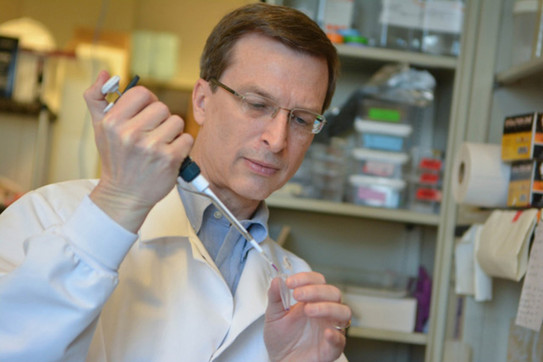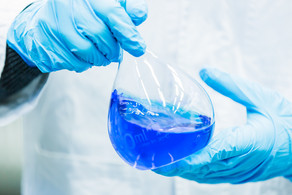Ehrendoktorwürde für Prof. Craig M. Crews
- Previews
- Neues aus der Fakultät 2021


Professor Crews erhält die Ehrendoktorwürde für seine bahnbrechenden Arbeiten zum gezielten Proteinabbau. Er erfand und entwickelte ein grundlegend neues Prinzip zur Beeinflussung von Proteinfunktionen, das in der Grundlagenforschung breite Anwendung gefunden hat und heute eine wichtige Säule in der Wirkstoffentwicklung darstellt. PROTACs (PROteolysis TArgeting Chimeras) binden krankheitsrelevante Proteine und lenken sie in das zelluläre Abbauprogramm. Dadurch kontrollieren sie den Proteinspiegel und indirekt auch die Proteinfunktion. PROTACs sind zu weit verbreiteten Reagenzien und Werkzeugen in der Grundlagenforschung geworden und werden in klinischen Studien als neue Wirkstoffklassen ("Modalitäten") erforscht.
Die Fakultät für Chemie und Chemische Biologie freut sich, dass das Rektorat dem Vorschlag gefolgt ist, und über die Erweiterung unserer Verbindungen zur internationalen Spitzenforschung. Die offizielle Verleihungszeremonie wird aufgrund der aktuellen Coronavirus-Situation auf einen späteren Zeitpunkt verschoben.
English version
Craig M. Crews was born in Virginia, USA in 1964 and studied chemistry at the University of Virginia before receiving his Ph.D. from Harvard University. He has been on the faculty of Yale University (New Haven, CT, USA) since 1995, where he holds the John C. Malone Professorship . Professor Crews receives an honorary doctoral degree for his pioneering work on targeted protein degradation. He invented and developed a fundamentally new principle for interference with protein function which has found widespread application in fundamental research and which now defines a major activity in drug discovery. PROTACs (PROteolysis TArgeting Chimeras) bind disease relevant proteins and direct them to the cellular degradation system. Thereby they control protein levels and, indirectly, protein function. PROTACs have become widely used reagents and tools in fundamental research and are explored in clinical trials as new drug modalities.
The Faculty of Chemistry and Chemical Biology is pleased that the Rectorate has followed the proposal and about the expansion of our links to top-ranking international research. The official presentation ceremony will be postponed to a later date due to the current coronavirus situation.






